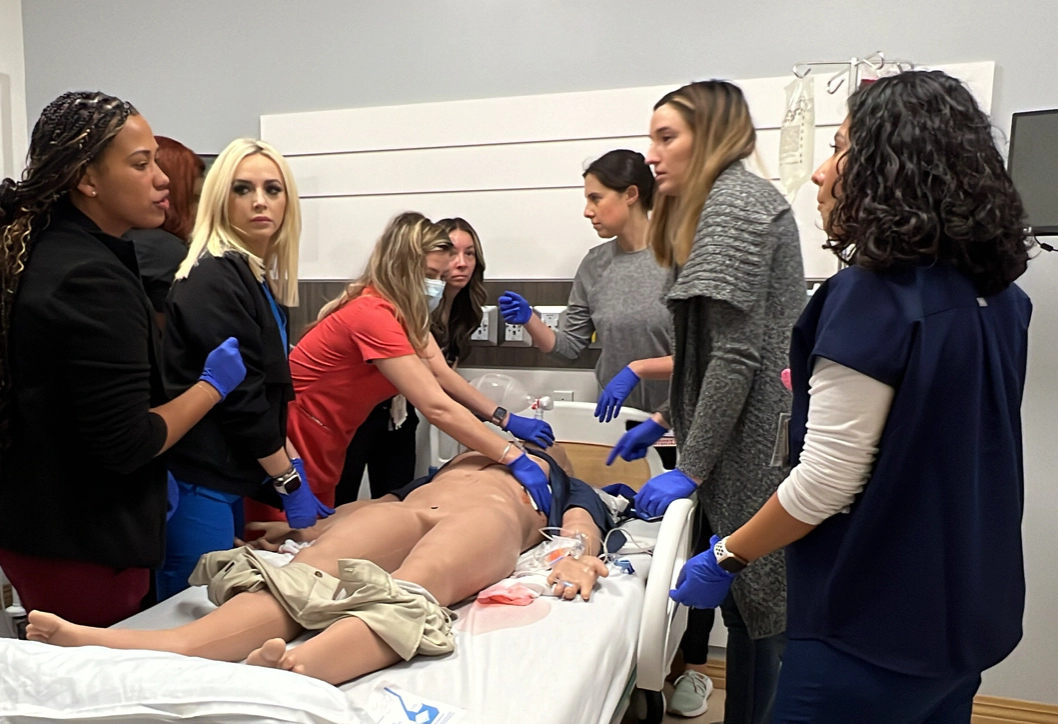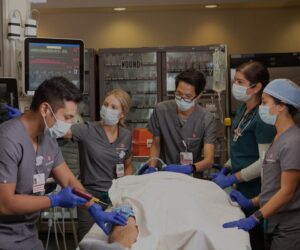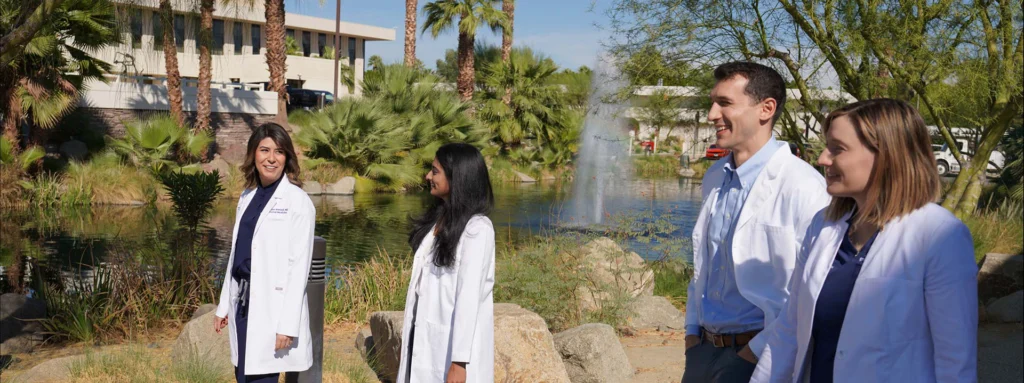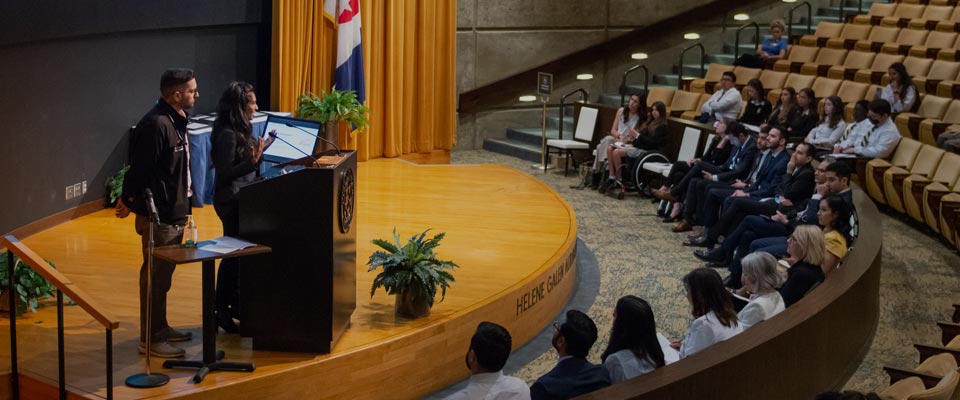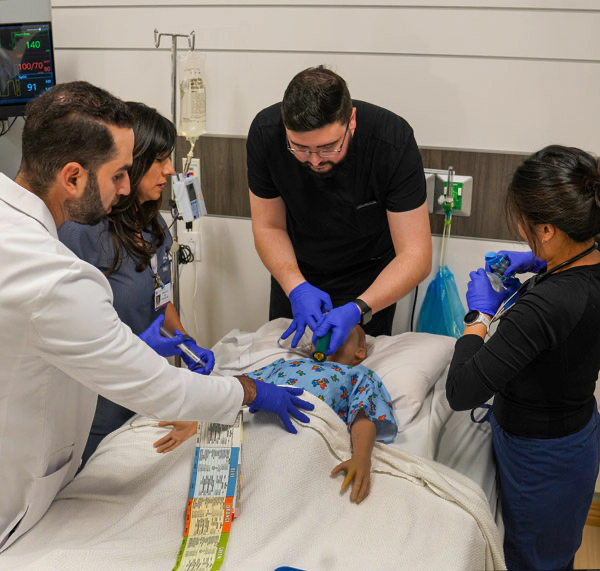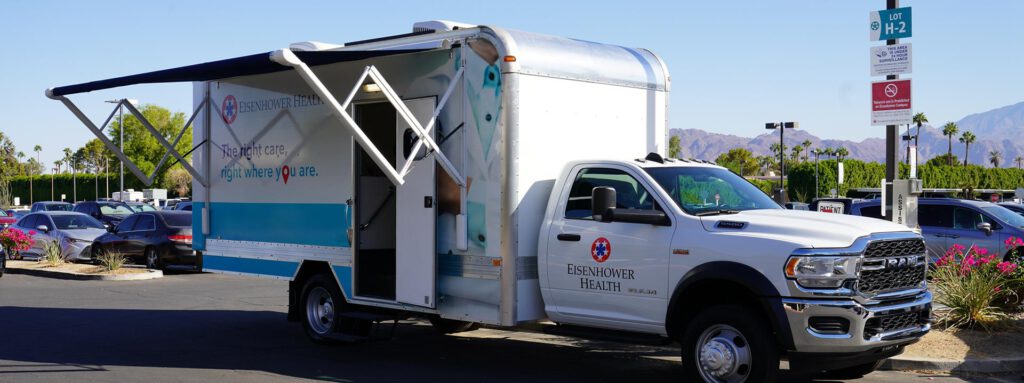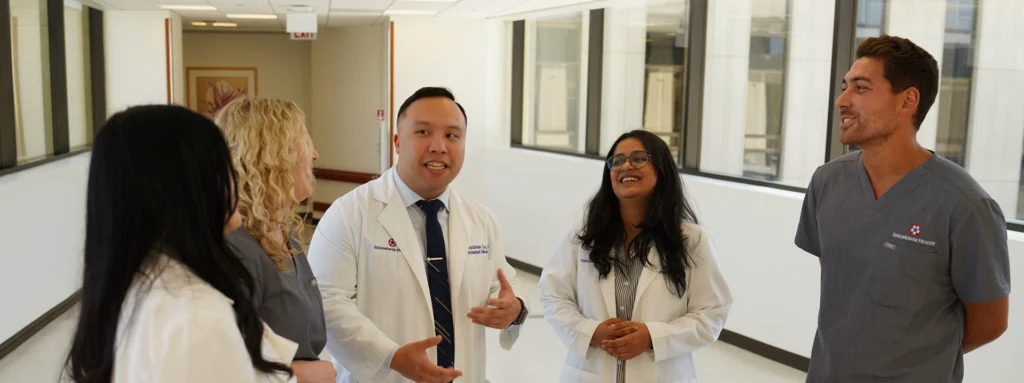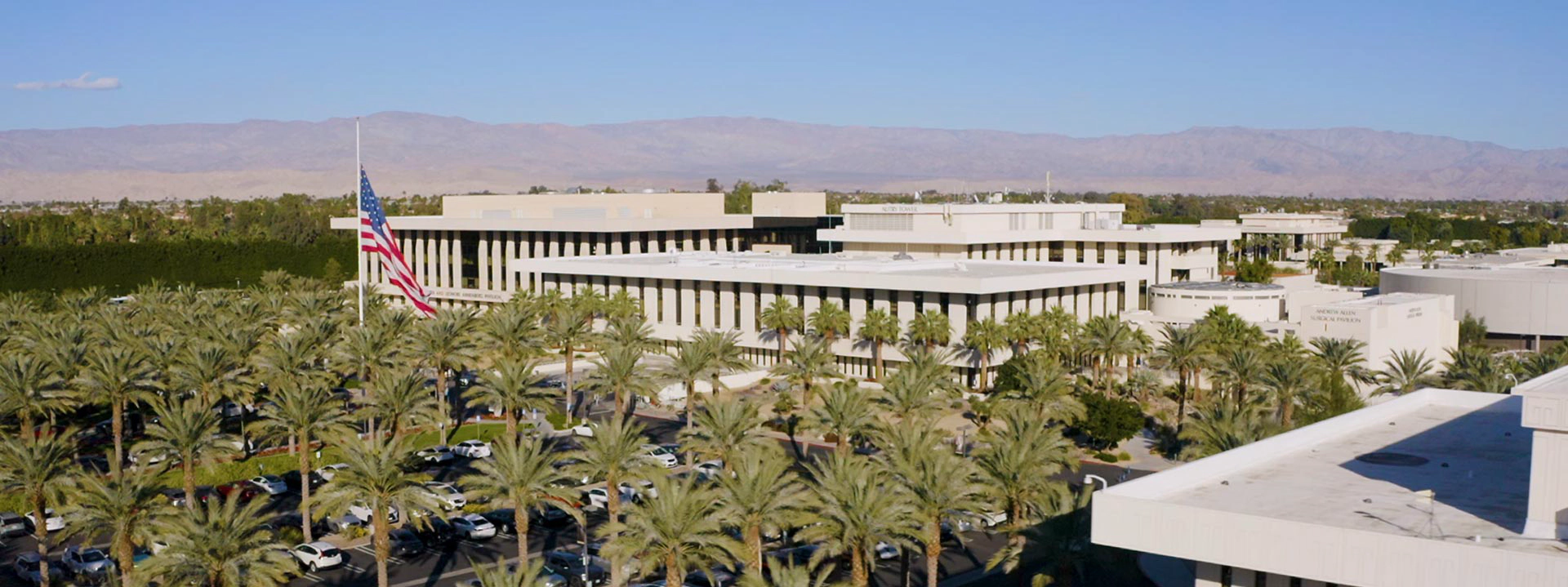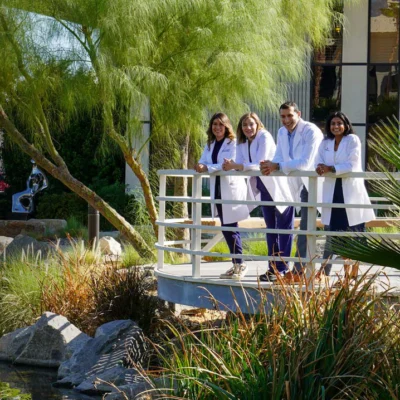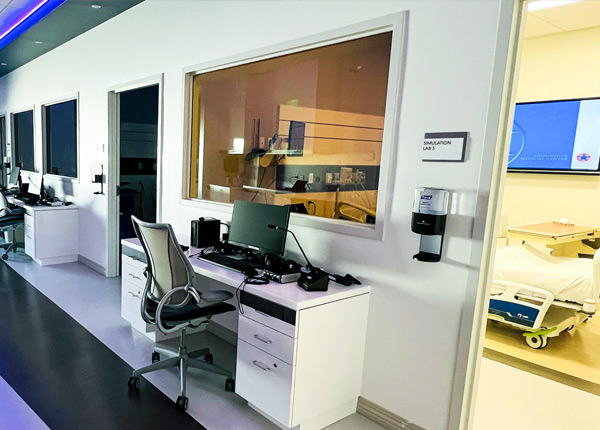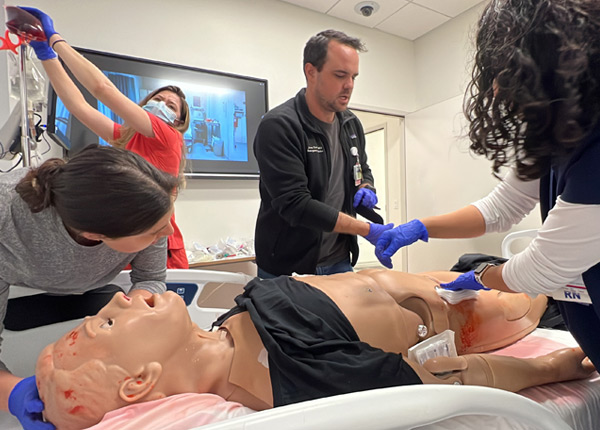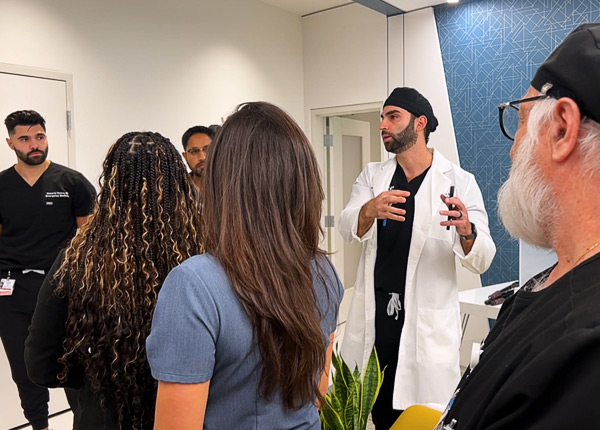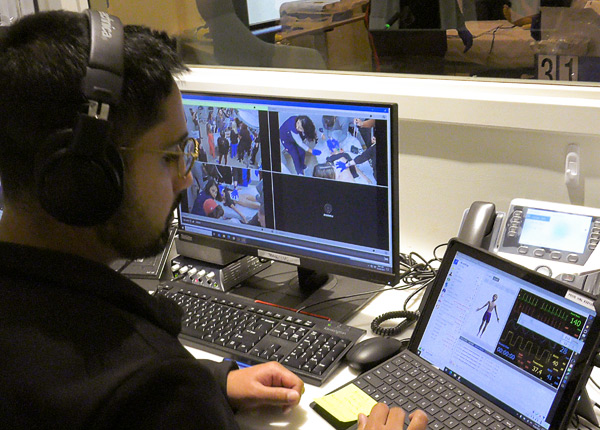Simulation Center
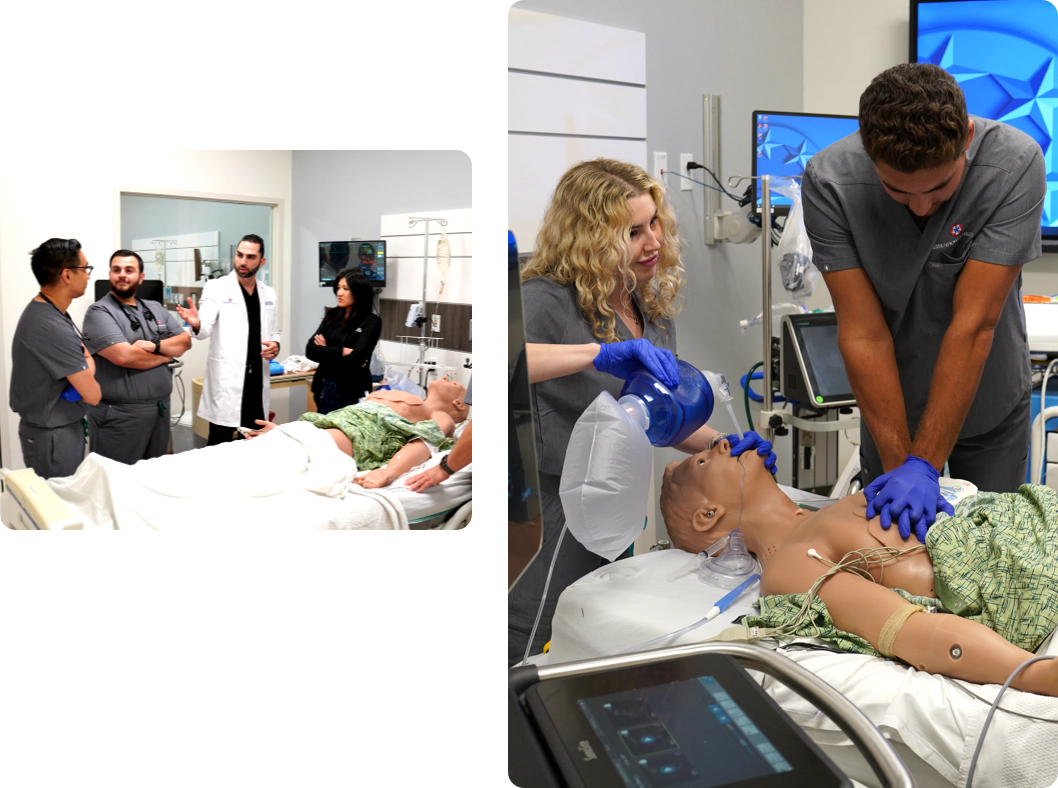
How simulation training translates to quality care
The Simulation Center at Eisenhower Health offers students an invaluable opportunity to hone in on their clinical skills and decision-making abilities through immersive, realistic patient scenarios. This plays an integral role in shaping the next generation of exceptional Eisenhower Health providers.
Learn and Practice on the Most Advanced Medical Training Technology
Our 2,500 square feet space is equipped with state-of-the-art, immersive technology where students and medical professionals can train and learn in a controlled environment with:
In health care, essential critical thinking skills are paramount, particularly in time-sensitive scenarios.
We aim to develop simulations that authentically replicate these hospital challenges, providing optimal training for diverse participants, including medical students, residents, and fellows. Our commitment is to uphold the highest standards of care, acknowledging the trust our community places in us for their well-being. Embracing this responsibility, we are dedicated to providing support in their moments of need."
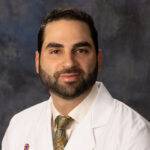
- Solomon Sebt, MD
Medical Director of the John Stauffer Center for Innovation in Learning,
Eisenhower Health
Benefits of Simulation Training
Hands-on Training Without Risk
Experience real-life situations and symptoms in a space where you can safely make mistakes, learn from those mistakes and try again.
Instant Performative Feedback
Allows the team to debrief after a training session to assess decisions made, what went right or wrong and gain confidence in what to do next time.
Train as a Team
Work collaboratively as a team and gain key competencies, such as communication, problem-solving, teamwork, and leadership.
Practice Any Number of Scenarios
A variety of medical problems—from the common to the unusual—can be recreated allowing you to gain experience.
The Simulation Lab helps us prioritize patient care and safety
Our Simulation Lab uses immersive clinical replicas to enable future physicians to strengthen instincts and expertise with no patient risk, building practical knowledge through hands-on repetition with guided assessment to apply these skills adeptly in real clinical encounters later on as practicing doctors.
